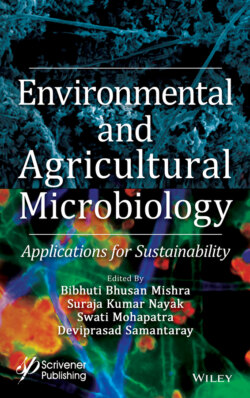Читать книгу Environmental and Agricultural Microbiology - Группа авторов - Страница 29
1.8 Conclusion and Future Prospects
ОглавлениеBioremediation has proved to be an excellent tool for environmental remediation of pesticides originating from agricultural activities. There are a number of conventional techniques which are employed for pesticide remediation. But the cost associated with these methods is huge which made humans look for alternative remediation methods such as bioremediation. Traditionally, bacteria and fungi have been exploited for bioremediation but recently scientists and researchers have given sufficient attention to microalgae as a bioremediation candidate pertaining to its low nutritional requirements and versatile metabolic activity. Further, microalgae-based remediation may be integrated with other technology such as biofuel production, making them superior to its fungal and bacterial counterparts. However, there is an urgent need of more advance studies using proteomics and genomic tools to identify key genes involved in pesticide degradation. These genes can be used for development of transgenic microalgae for an efficient bioremediation of pesticides.
